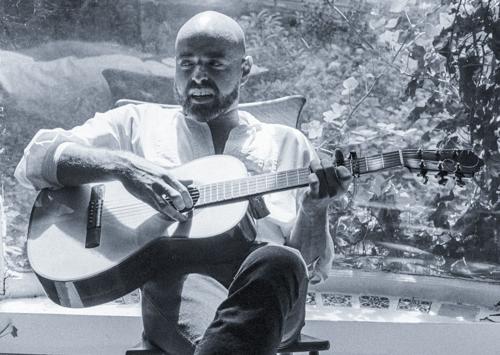Listen to New Voices on Studs Terkel our partnership with 826CHI-here! Read the Story
Showing 1 - 15 of 16 results
-
Shel Silverstein discusses his books, children's literature, and art; part 2
Nov. 20, 1961 Shel Silverstein discusses his books and children's literature, and art. Shel Silverstein discusses his contemporaries, art, and life experiences.
-
Robertson Davies discusses his book, "Lyre of Orpheus"
Jan. 26, 1989 Robertson Davies, Canadian writer and professor, discusses his newest book, "Lyre of Orpheus," the third book in the "Cornish Trilogy." The summary of the book and its ties to the King Arthur legend are explained.
-
Reading the letters of ex-convict Jimmy Blake
Jul. 11, 1962 Terkel comments and reads letters of ex-convict Jimmy Blake
-
Ralph Ellison discusses music
Jun. 18, 1992 The blues and jazz are topics covered by Ralph Ellison. Ellison himself started to play the trumpet at the age of seven. Ellison said for him, when hearing classical music, he then had to go and find classical literature.
-
Oliver W. Sacks discusses his book "Awakenings"
1985 In the of first of many appearances on Studs' radio show, Oliver Sacks discusses his book "Awakenings" and recounts several patient profiles from his groundbreaking treatment application of L-DOPA to sufferers of Sleeping sickness and Parkinson's disease. They explore his work in the context of Studs' concept of Feeling Tone and Sacks tells of a remarkable scene with aphasic patients reacting to a speech of then President Ronald Reagan.
-
Ned Rorem discusses his writing and compositions
1966 Ned Rorem discusses the differences between writing books and writing compositions, his book "The Paris Diary of Ned Rorem", and how he uses poetry in his compositions.
-
Michael Anania discusses his poetry collection, "Riversongs"
Mar. 2, 1979 Poet and editor Michael Anania discusses his poetry collection, “Riversongs” and reads selected works from the collection. Anania discusses the themes of place, transience, and permanence in the Midwest. Episode includes relevant music recordings, including a number of unidentified instrumental recordings and songs by Woody Guthrie, Los Jaivas, and Joni Mitchell.
-
Maya Angelou discusses her early life and African American culture and people
Apr. 1, 1960 Angelou discusses: her early life; her international travels; dancing; blues and jazz music; and the book "Youngblood" by John Oliver Killens. Musical selections have been removed due to copyright.
-
Maya Angelou discusses her early life and African American culture and people
Apr. 1, 1960 Angelou discusses: her early life; her international travels; dancing; blues and jazz music; and the book "Youngblood" by John Oliver Killens. In this program "In the Evening (When the Sun Goes Down)" and "Joe Turner No. 2 (Blues of 1892)" by Big Bill Broonzy, "I Ain't Gonna Pick No More Cotton" by Sam Lightnin' Hopkins is played, as well as other musical selections.
-
E. Y. (Yip) Harburg discuss his book "At This Point in Rhyme"
Feb. 18, 1977 E.Y. (Yip) Harburg and Studs Terkel read from the book "At This Point in Rhyme". E.Y. Harburg also discusses his thoughts on humanity, how to properly write a song, and the importance of light verse and humor as a basis for everything he creates. Excerpts of "Somewhere Over the Rainbow" by Judy Garland, "Brother, Can You Spare a Dime" by the Weavers, and a Broadway recording of "How Are Things in Glocca Morra" are played in the original airing but have been removed from this version for copyright reasons.
-
Discussing the book "High Times, Hard Times" with Anita O'Day
May. 3, 1990 Program includes an excerpt of a 1975 interview with O'Day (T3024.5).



